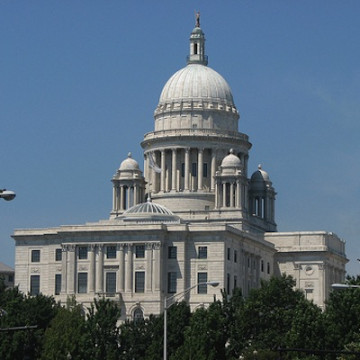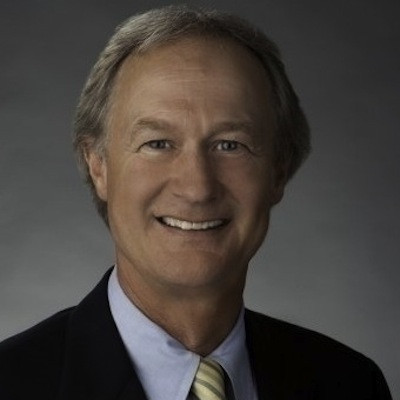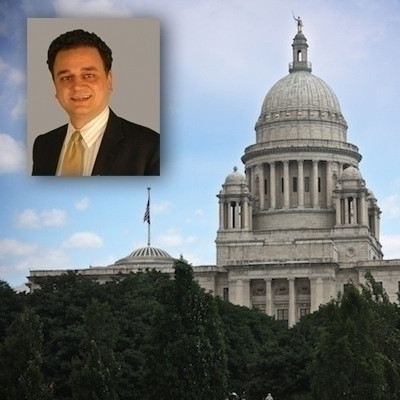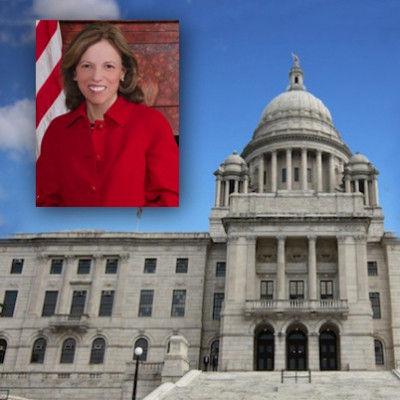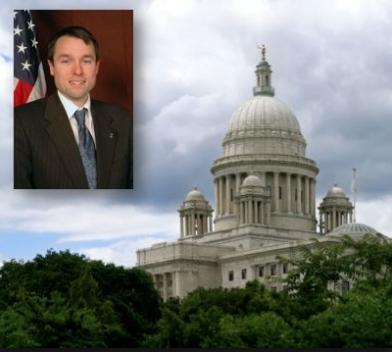Russell Moore: What’s Our Niche?
Monday, January 27, 2014
RI should try to develop all sectors of the economy, but let's focus on our strengths, or, where the demand is, instead of tilting at economic windmills, believes Russell Moore.
The Brookings Institute’s Jennifer Bradley certainly thinks it should—at least when it comes to economic development. Speaking at the Providence Preservation Society’s annual meeting last Thursday evening, Bradley, the author of The Metropolitan Revolution, argues that in the new economy, it’s large metropolitan cities that will drive innovation and growth.
It was a peculiar notion given that, as far as I always thought, cities have always driven innovation and growth. But Bradley, however, seemed to argue that instead of the federal government and states setting policies that trickle down to the cities, the major metropolitans should create policies that should be matriculated up to the states and federal government.
GET THE LATEST BREAKING NEWS HERE -- SIGN UP FOR GOLOCAL FREE DAILY EBLASTIn other words, the traditional model should be inverted, she suggested. What’s more interesting about her argument is that she believes leadership need not come from government officials or political leaders, but can include business leaders, philanthropists, and researchers.
A tough sell
At first blush, that sounds like a particularly tough sell. Let’s face it, cities are subservient to their state governments and the federal government, by and large, supersedes states. Of course the lion-share of economic development is going to come from urban centers—that’s where the most people are.
But Bradley says that the economic growth we’ve seen in since The Great Recession has come from cities independent of anything the states of federal government have done—with the exception of the stimulus package of 2008. That’s the type of leadership America needs, she said.
Success stories?
For instance, in New York City, in the aftermath of the 2008 recession, new graduate schools focusing on applied science were developed, which made the metropolis a leader in the science based economy. In Portland, Oregon, the business and civic leaders there focused on increasing exports to combat the effects of the recession. And even in Detroit, Michigan, a philanthropic fund was set up to spur economic development—which is directly tied to the creation of 10,000 new jobs.
In all those instances, the new shift that that those particular economies are based on production, not consumption and debt. It’s a major shift, and a necessary one to build a sustainable economy, she said.
Is consumption bad?
Bradley basically argued that an economy based on consumption is not sustainable. But is that really true? There are scores of places throughout the world who base their economies on entertainment and tourism and do well at it. I'm thinking gambling here. One of the biggest growing sectors of the RI economy is gaming. To my mind, why not focus on what appears to be one of our strengths?
Bradley also seemed to critique the Providence “Renaissance” of the nineties—perhaps indirectly. The old way of thinking back then, she said was, “if you build a big, expensive building that’s in use 24 days of the year, you’ve got it.”
It was a snarky criticism of what was done in Providence in the nineties, but I’d argue that if it weren’t for developments like the Providence Place Mall, the Convention Center, along with so many other key developments, Providence, and Rhode Island as a whole would be so much worse off today than it is now.
Adapt or stagnate
Yet by the end of her lecture I realized that she was, while using different terms and more academic language, telling us something we've known for a long time. We need to find a new niche for our economy. As long as Providence fails to find a new niche--something to replace manufacturing, we'll never be able to survive, let alone thrive.
“If you try to be the next anything, you’re almost certainly going to fail,” Bradley said.
We’d better become the next something and fast, but what? We all know about how Rhode Island relied on manufacturing in the past. But those days have left and gone away. In the year 1980, manufacturing made up 28 percent of the state’s GDP. Today, manufacturing makes up 8 percent of our GDP.
Ever since I’ve been a reporter following Rhode Island politics, starting in 2005 at The Chariho Times, in Richmond R.I., I’ve heard economists, politicians, and average, everyday citizens discuss the need for Rhode Island to transition into a “new economy”.
Meds and Eds--not going to save us
The prominent idea for places like Providence in the millennial years was based on “meds and eds”—the idea being education and medicine would drive the economy. But those investments and initiatives haven't paid the dividends we've wanted. The state perpetually faces, stubbornly high unemployment and we're not hearing about scores of new companies opening based on those investments.
The larger message of her lecture centered on the need for collaboration between companies and organizations instead of combative competition. It sounds like a good idea if you’re seated in an ivory tower, but how does one implement such a strategy down on Main Street? Where I come from, companies are always trying to gain a competitive edge on one another, and collaboration would have companies stealing each other's ideas, not working together.
Knowledge District
Believe it or not, Rhode Island has been trying to enact that type of a strategy since 2008 when Providence developed the Knowledge District in the remnants of the Jewelry District. The problem is that despite a few notable exceptions, there hasn’t been the organic development of high tech companies hiring scores of employees that we’ve needed so desperately.
Let's face it, we can't centrally plan our economy. It needs to organically sprout up based on our resources, skills, and natural advantages. Sure, the government can try to help, but unfortunately, it seems like more often than not, the government just ends up getting in the way.
A new way
Rhode Island better find some economic answers, and fast. In the wild its adapt or die. In 21st century America, with respect to economics, it's adapt or lag and stagnate. Unfortunately, we seem to be doing far more stagnating than adapting.
Rhode Island can continue wishing for the economy it wants to have, or we can focus on the things that are working—tourism, hospitality, and gaming.
In the same respect, RI might want to think about legalizing non harmful drugs like marijuana. No one can deny that that would also be an economic boom and provide us with much needed tax revenue.
Of course we should try to develop all sectors of the economy, but let's focus on our strengths, or, where the demand is, instead of tilting at economic windmills—or, what's worse, just wishing and hoping.
A native Rhode Islander, Russell J. Moore is a graduate of Providence College and St. Raphael Academy. He worked as a news reporter for 7 years (2004-2010), 5 of which with The Warwick Beacon, focusing on government. He continues to keep a close eye on the inner workings of Rhode Islands state and local governments.
Related Slideshow: 7 Strategies for Rhode Island Economic Development in 2014
What will it take to move the Rhode Island economy forward in 2014? GoLocal talked with elected officials, candidates, and leaders for their economic development plans in the coming year.
Below are key elements of the economic priorities for Governor Lincoln Chafee, Speaker of the House Gordon Fox, Senate President M. Teresa Paiva-Weed, House Minority Leader Brian Newberry, gubernatorial hopefuls General Treasurer Gina Raimondo and Ken Block, and RI Center for Freedom and Prosperity's Mike Stenhouse.
Related Articles
- Russell Moore: Chafee Should Pursue Bold Economic Reforms
- Russell Moore: Christie, Taveras and Fung—Politicians Gone Wild
- Russell Moore: Colleges Are The Culprit In Student Loan Debacle
- Russell Moore: 38 Studios Taints RI House Budget
- Russell Moore: Are Student Loans The New Indentured Servitude?


